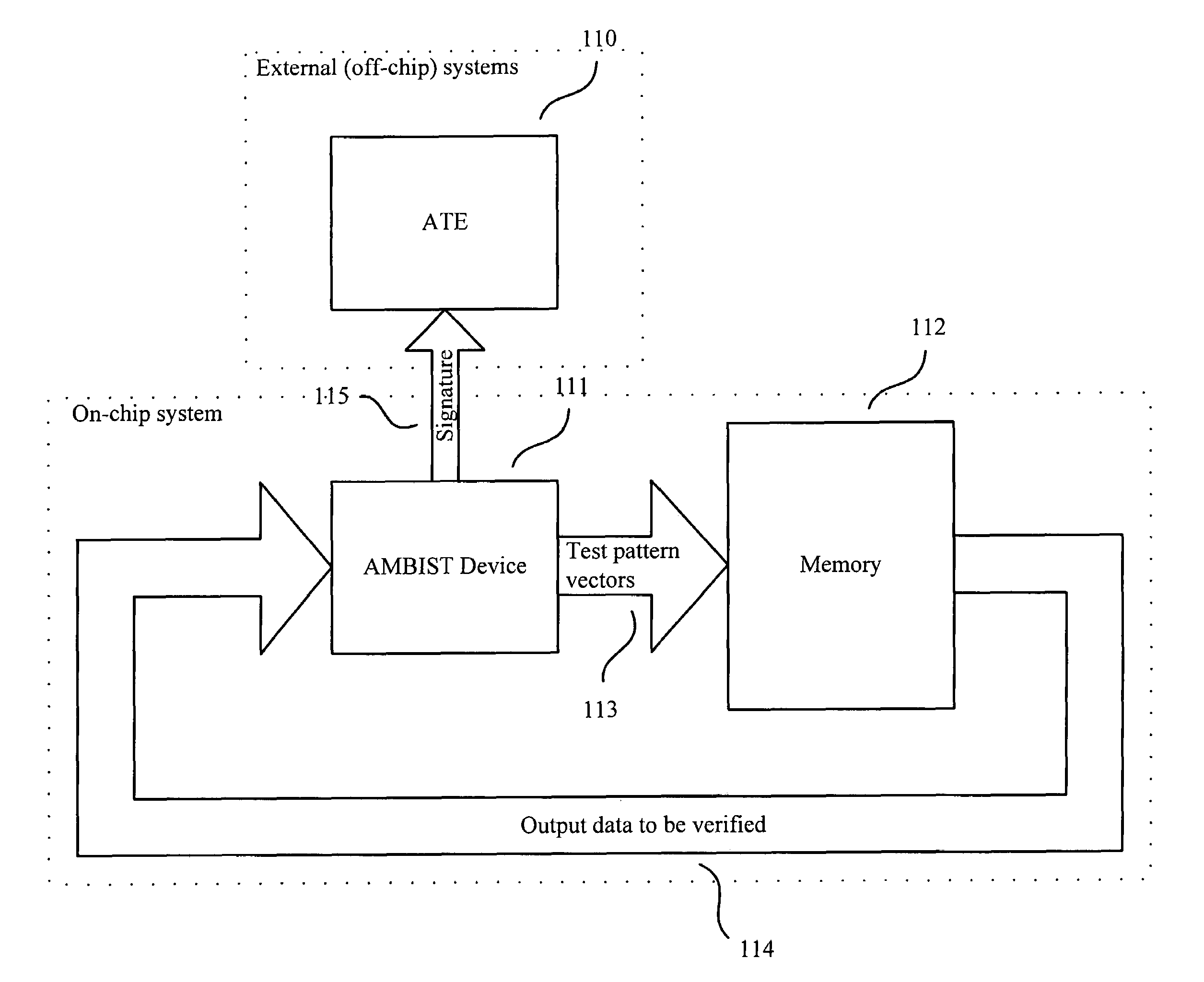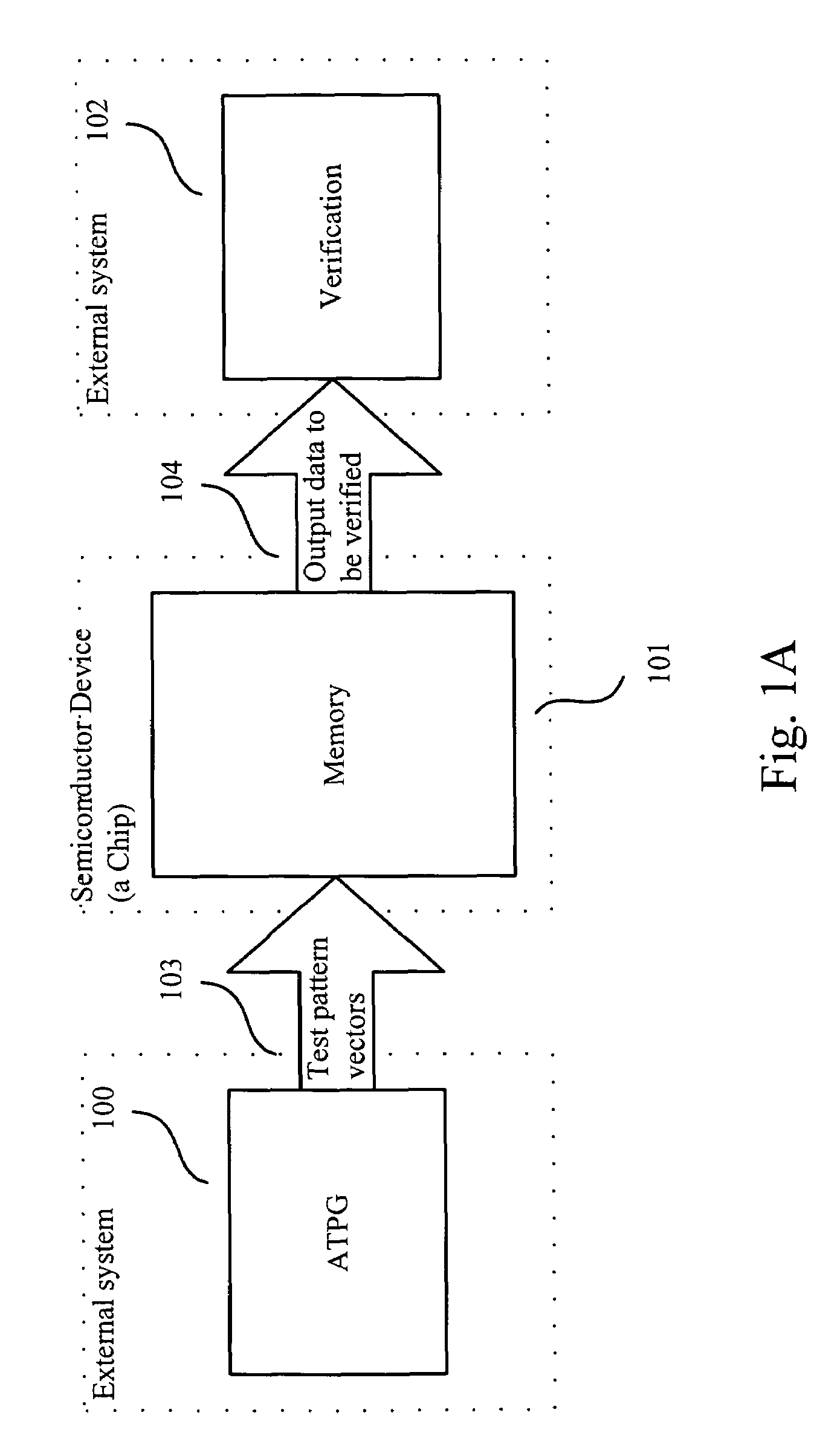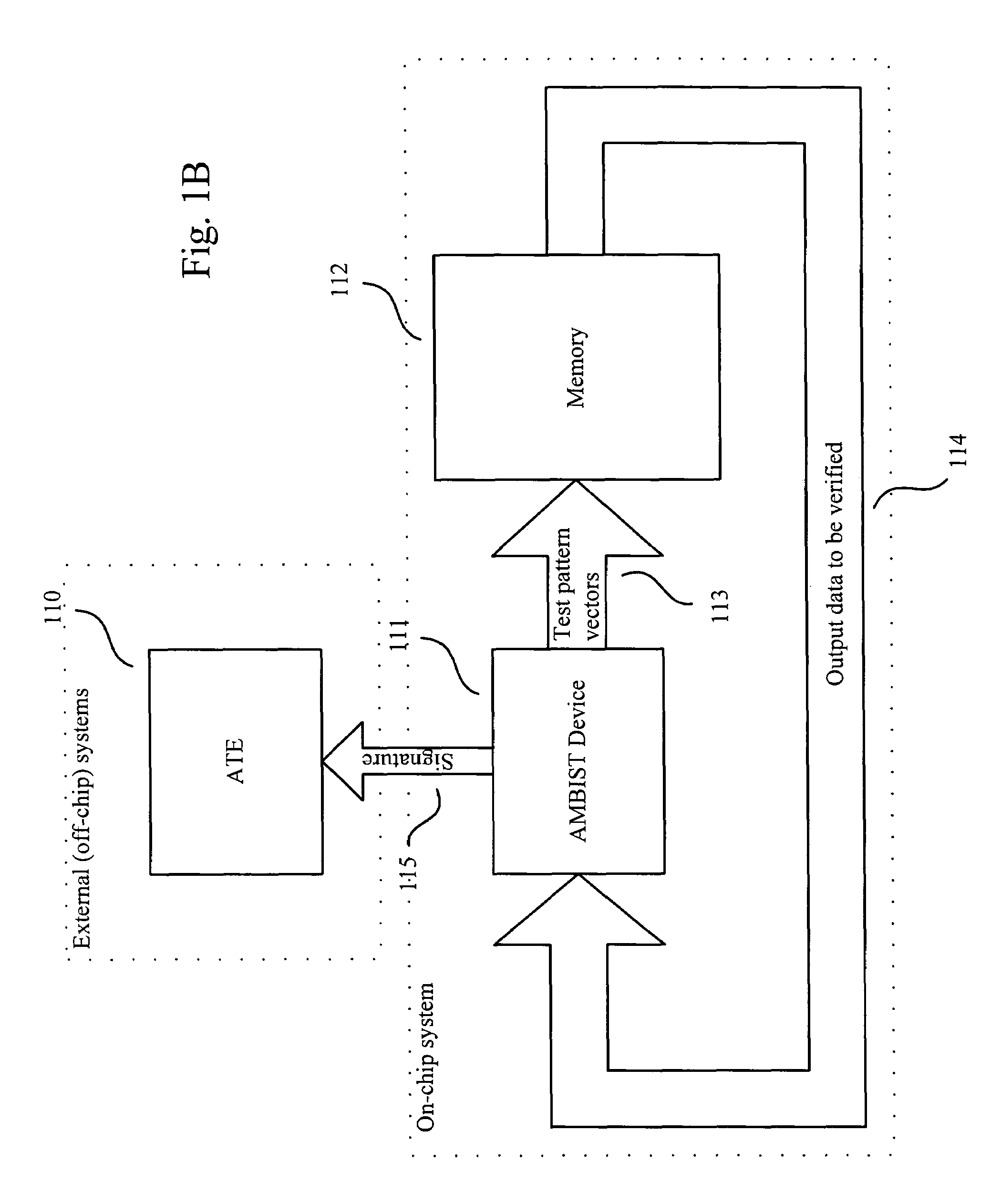Method and system for testing memory using hash algorithm
a technology of memory and hash algorithm, applied in the field of methods and systems for testing memory using hash algorithm, can solve the problems of high cost of test equipment and test time, and achieve the effect of reducing test time, cost and complexity of external test system
- Summary
- Abstract
- Description
- Claims
- Application Information
AI Technical Summary
Benefits of technology
Problems solved by technology
Method used
Image
Examples
Embodiment Construction
[0029]Reference will now be made in detail to the present preferred embodiments of the invention, examples of which are illustrated in the accompanying drawings. Wherever possible, the same reference numbers are used in the drawings and the description to refer to the same or like parts.
[0030]A test system and a method for testing a memory are described as follows. The test system is referred to as Accelerated Memory Built-In Self-Test (AMBIST) in the following description. Accelerated Memory Built-In Self-Test (AMBIST) system and methodology provides both Automatic Test Pattern Generation (ATPG) and Accelerated Test Method (ATM) verification solutions on a memory chip; thus, reducing test time, cost, and complexity of external test equipment.
[0031]FIG. 1B shows an exemplary memory test system with AMBIST embedded in a memory chip. In this embodiment, test pattern vectors 113 are generated with AMBIST device 111 and written into memory 112; then content of the memory 114 are read by...
PUM
 Login to View More
Login to View More Abstract
Description
Claims
Application Information
 Login to View More
Login to View More - R&D
- Intellectual Property
- Life Sciences
- Materials
- Tech Scout
- Unparalleled Data Quality
- Higher Quality Content
- 60% Fewer Hallucinations
Browse by: Latest US Patents, China's latest patents, Technical Efficacy Thesaurus, Application Domain, Technology Topic, Popular Technical Reports.
© 2025 PatSnap. All rights reserved.Legal|Privacy policy|Modern Slavery Act Transparency Statement|Sitemap|About US| Contact US: help@patsnap.com



